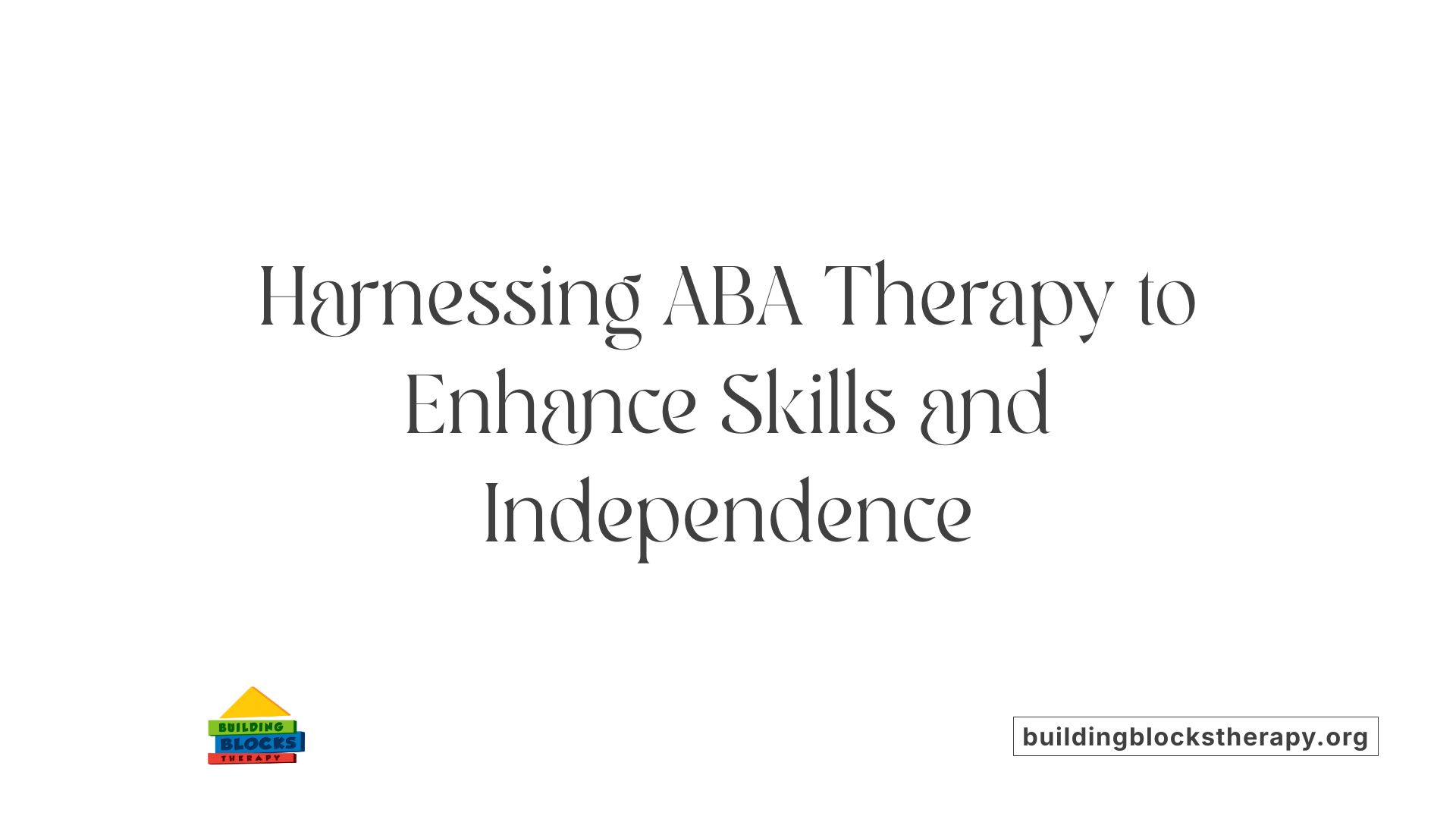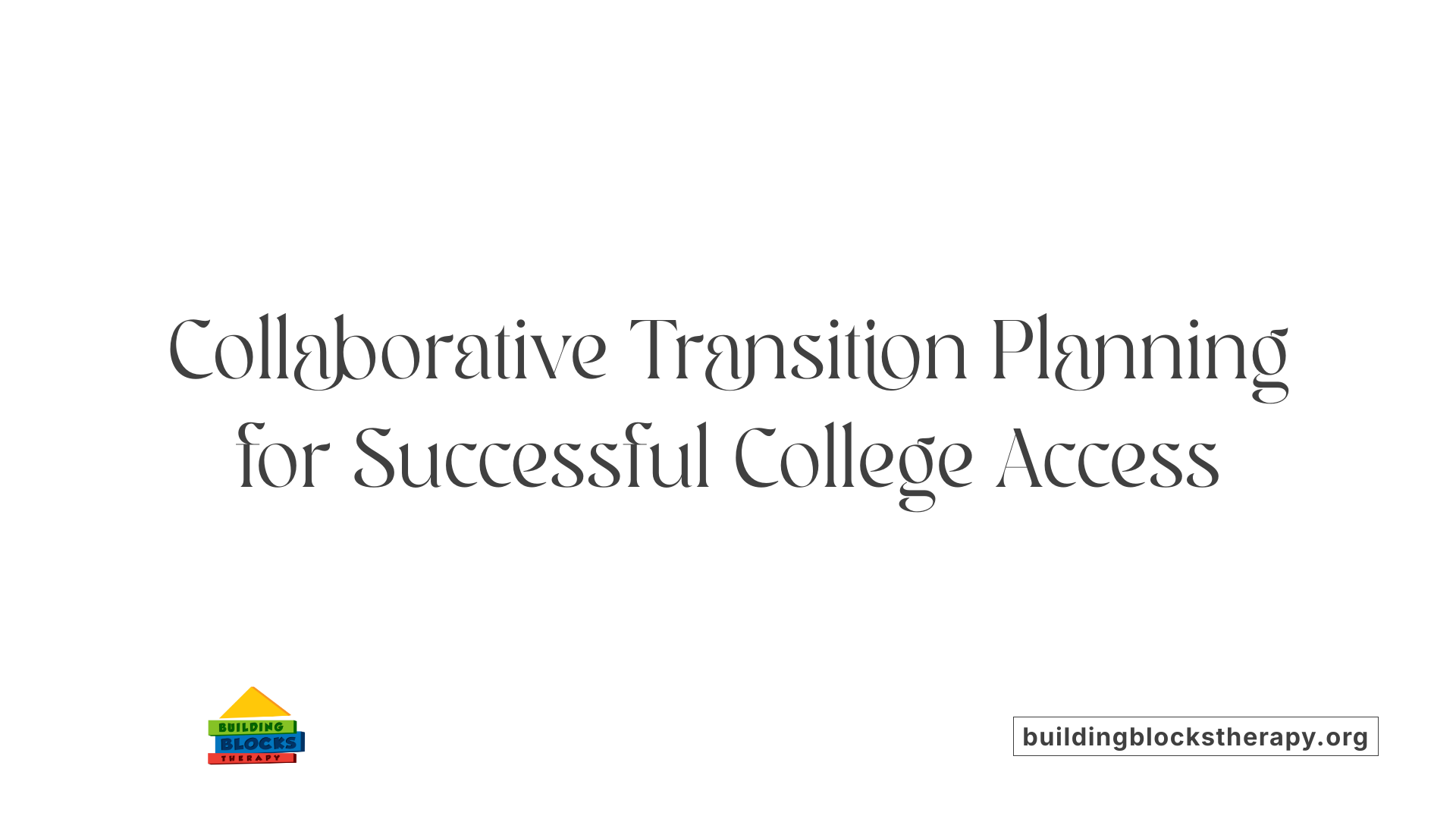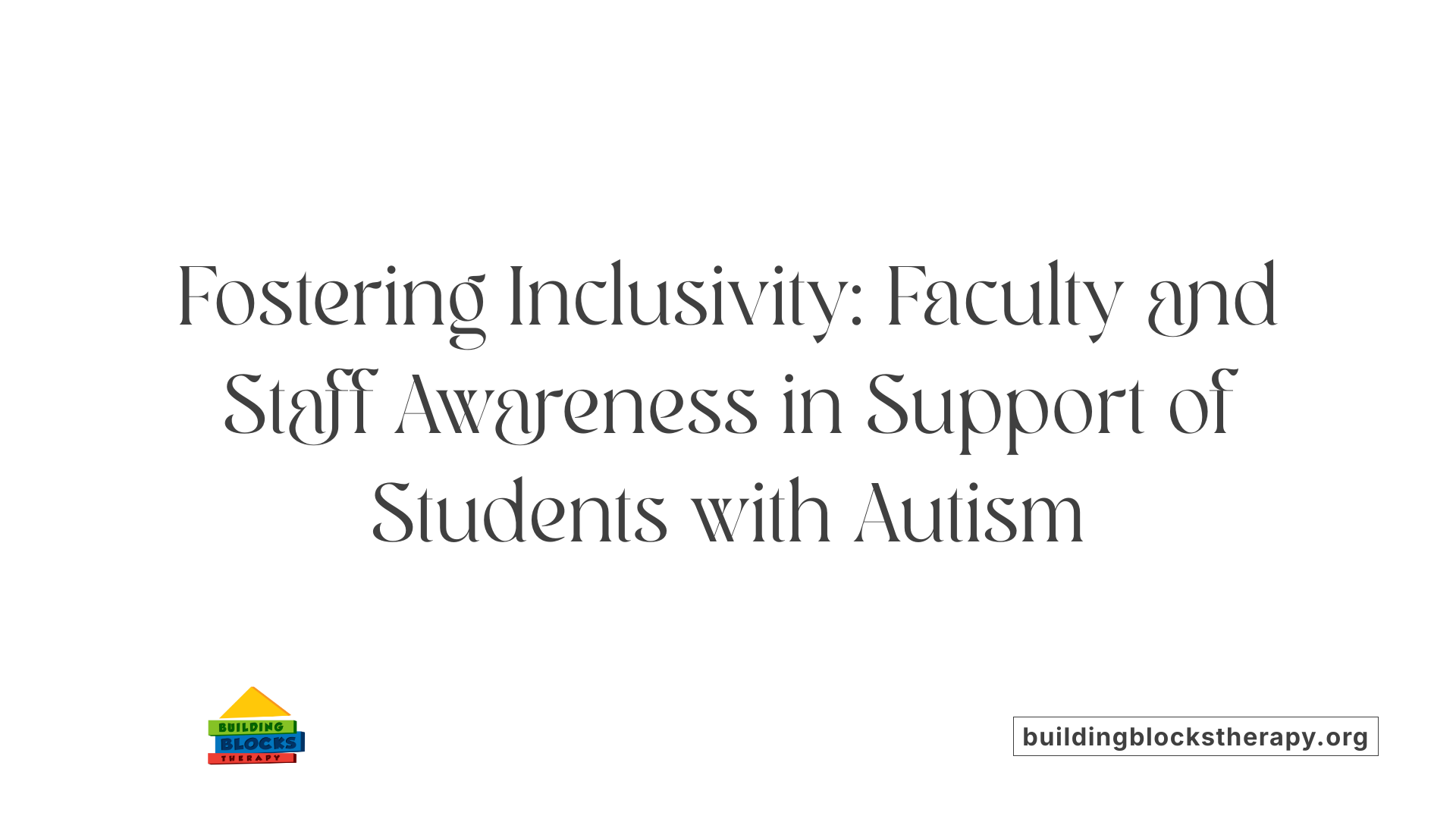Understanding the Journey to College for Students with Autism
Transitioning to college presents unique challenges and opportunities for students on the autism spectrum. This article explores the multifaceted support systems, therapies, and strategies that empower these students to succeed academically, socially, and independently in higher education environments.
Applied Behavior Analysis (ABA) Therapy: Foundations and Techniques
What is Applied Behavior Analysis (ABA) therapy?
Applied Behavior Analysis (ABA) therapy is a scientifically supported approach that focuses on understanding and modifying behaviors. It analyzes the relationships among antecedents (what happens before a behavior), behaviors themselves, and their consequences. The goal is to increase positive, helpful behaviors—like communication, social skills, and academic performance—and reduce harmful or challenging behaviors by applying principles such as positive reinforcement.
ABA therapy is highly personalized, tailored to meet the unique needs of each individual, and can be delivered in multiple environments including home, school, or clinic settings. It is effective for individuals of all ages, especially those with autism spectrum disorder and related developmental conditions.
Common ABA techniques
ABA utilizes a variety of techniques designed to promote learning and behavioral change. Some well-known methods include:
Discrete Trial Training (DTT): Breaking skills down into small, manageable components, taught systematically with prompts and rewards.
Pivotal Response Treatment (PRT): Targets key areas such as motivation and response to multiple cues, encouraging natural learning through play and social interaction.
Early Start Denver Model (ESDM): Integrates ABA principles with developmental and relationship-based approaches to support young children.
These techniques use clear, measurable goals and consistent data collection to monitor progress.
Role of ABA in behavior modification
ABA plays a crucial role in behavior modification by addressing the underlying reasons for behaviors and teaching alternative, appropriate responses. It helps individuals develop functional skills across communication, social interactions, self-care, and academic tasks.
Through repeated, reinforced practice, individuals learn to replace challenging behaviors with more adaptive ones, boosting independence and improving quality of life. The structured nature of ABA supports gradual skill development and generalization of learning across settings.
Overall, ABA therapy is a foundational and evidence-based strategy that empowers people with autism and other developmental differences to thrive in various aspects of life.
Benefits of ABA Therapy for Individuals with Autism

Skill improvement through ABA
Applied Behavior Analysis (ABA) therapy offers significant benefits for individuals with autism by targeting essential skills in a systematic and evidence-based manner. It focuses on enhancing communication, social interaction, and adaptive behaviors that are critical for daily functioning. Techniques such as positive reinforcement and behavior analysis are used to increase helpful behaviors while reducing challenging or harmful ones. This approach helps individuals improve their ability to interact effectively with others and navigate daily life with greater independence.
Personalization and family involvement
A key strength of ABA therapy is its high level of personalization. Qualified behavior analysts design and tailor therapy plans based on comprehensive assessments and ongoing data collection. This individualized approach ensures that goals align closely with the individual's unique strengths and challenges. Family involvement is an integral component, allowing caregivers to participate actively in the therapy process, reinforce skills at home, and maintain consistency across environments. This partnership enhances the effectiveness of ABA therapy and supports meaningful generalization of skills.
Long-term impacts
Early and intensive ABA interventions have demonstrated considerable long-term benefits. Individuals receiving ABA therapy show significant developmental gains, including improved language abilities, social skills, and greater independence. These improvements may reduce future dependency on special services, enabling individuals to participate more fully in educational settings and community life. Overall, ABA therapy provides a scientifically supported framework that fosters not only skill development but also improves quality of life for those on the autism spectrum.
ABA Therapy Providers: Who Delivers the Services?
Who Provides ABA Therapy Services?
ABA therapy services are delivered by a range of trained and certified professionals dedicated to supporting individuals with autism.
The principal providers are Board Certified Behavior Analysts (BCBAs), who design and oversee individualized treatment plans. They are often supported by licensed therapists and behavioral intervention specialists who implement therapy under supervision. Specialized companies focusing on autism treatment commonly employ these professionals, offering services in-home, in clinics, or school settings.
Family involvement is also critical; trained parents and caregivers frequently help reinforce skills learned during therapy sessions, promoting consistency and generalization of behaviors.
The overall goals of ABA therapy include enhancing communication, developing social skills, and improving daily living abilities. While ABA is not a cure for autism, it plays an essential role in fostering greater independence and quality of life for individuals on the spectrum.
Empirical Support for ABA Therapy Effectiveness
What evidence supports the effectiveness of ABA therapy?
Applied Behavior Analysis (ABA) therapy is backed by a substantial body of research validating its effectiveness across multiple developmental areas in children with autism. Numerous research studies and meta-analyses highlight consistent improvements after ABA interventions, particularly in communication, social skills, adaptive behaviors, and intellectual functioning.
Early initiation and sustained application of ABA yield pronounced benefits, especially for children who start treatment with lower adaptive skills. Quantitative studies show that language abilities, cognitive functions, and daily living skills can improve significantly with consistent, well-structured ABA programs. Effect sizes reported in these studies frequently range from moderate to large, confirming meaningful developmental gains.
Research studies and meta-analyses
Extensive research consolidating results from diverse clinical settings documents ABA’s role in fostering better outcomes for children with autism spectrum disorders. Meta-analyses incorporate data from numerous trials, with findings affirming ABA as an evidence-based intervention. Clinical guidelines from major health organizations also endorse ABA as a standard-of-care treatment based on this cumulative evidence.
Improvements in developmental domains
ABA therapy targets core deficits in autism by breaking down complex behaviors into measurable components. Through reinforcement strategies, children learn improved communication techniques, social interaction skills, and adaptive behavior approaches that increase independence. Across developmental domains, ABA helps enhance intellectual functioning, facilitating academic readiness and daily functioning.
Challenges affecting outcomes
Despite its proven effectiveness, ABA therapy faces practical challenges that influence outcomes. High discontinuation rates and insufficient treatment dosing often limit the full benefits for some children. Accessibility, affordability, and individualized tailoring remain critical factors affecting consistent application and long-term success.
In conclusion, evidence firmly establishes ABA as an effective, research-supported method for improving developmental outcomes in autism. Its success, however, depends on early, intensive, and adaptable implementation to meet the child’s unique needs.
| Aspect | Description | Impact on Outcomes |
|---|---|---|
| Research Evidence | Multiple studies and meta-analyses confirm effectiveness | Validates ABA as evidence-based intervention |
| Developmental Improvements | Gains in communication, social skills, adaptive behavior | Enables greater independence and academic readiness |
| Challenges | Discontinuation, low dosing, access limitations | Can reduce long-term effectiveness |
The STEPS Program: A Tailored Transition Support for College Students with Autism
What is the STEPS Program?
The STEPS (Stepped Transition in Education Program for Students with ASD) is specifically designed to support students with autism spectrum disorder (ASD) as they transition into and navigate higher education. Developed through rigorous academic research at Texas Tech University, this program combines empirical evidence with consumer insights to effectively address the unique challenges faced by these students.
How was STEPS developed?
The creation of STEPS involved participatory research methods including focus groups and consultations with students with ASD, their parents, educators, and autism experts. This collaborative approach ensures the program directly meets the practical and social needs of students during the transition, making it both relevant and consumer-informed.
What does STEPS focus on?
STEPS emphasizes two crucial areas: self-determination (SD) and self-regulation (SR). Self-determination fosters students' awareness of their own goals and encourages independence, while self-regulation helps them monitor and adapt their behaviors, emotions, and cognition. These skills are critical in overcoming common ASD challenges such as maintaining routines, motivation, and goal-directed behavior, thus improving academic and social outcomes.
How is the program structured?
STEPS is delivered in two levels tailored to different stages of the college journey. Step 1 targets secondary students preparing for college and includes six counseling sessions plus an immersive campus experience. Step 2 supports college students or recent graduates through individual counseling, outings, and online content. This tiered approach provides seamless support from preparation through active college life.
How is STEPS customized and applied?
Extensive collaboration among students, families, and school personnel allows STEPS to adapt to the individual needs of each student while promoting social integration and independence. This flexibility addresses the diverse profiles of students with ASD, ensuring that interventions are personalized and grounded in real-world applicability.
What outcomes have been observed?
Preliminary feedback from 26 participants shows high satisfaction levels among both students and parents, suggesting strong acceptability and perceived effectiveness. STEPS seeks to fill the critical gap in transition supports by enhancing college success and overall quality of life for students with ASD.
Structure and Activities Within the STEPS Program
Step 1 and Step 2 Components
The STEPS program is divided into two distinct levels tailored to meet the evolving needs of students with autism spectrum disorder (ASD) as they transition into and progress through college. Step 1 targets secondary students preparing for higher education, providing foundational skills and experiences crucial for successful adaptation. Step 2 is designed for current college students or recent graduates, focusing on supporting them during their college years with more individualized interventions.
Counseling Sessions and Campus Immersion
In Step 1, participants engage in six counseling sessions aimed at enhancing self-determination and self-regulation skills. These sessions incorporate goal setting, awareness-building, and strategies for managing challenges specific to ASD. An important feature is the immersion campus experience, enabling students to explore college environments firsthand, which helps reduce anxiety and builds confidence.
Individualized Support and Outings
Step 2 offers personalized counseling tailored to each student’s unique needs and challenges in college life. It includes organized outings that provide practical opportunities for developing social skills, independent living, and navigating community resources. Additionally, online content supplements these experiences, ensuring continuous learning and engagement.
By combining structured counseling, experiential learning, and customized support, the STEPS program promotes independence and social integration for students with ASD across critical transition phases.
Collaboration and Involvement in Transition Planning

Who Are the Main Participants in Transition Planning?
Effective transition planning for students with autism spectrum disorder (ASD) requires strong collaboration among multiple parties. Students themselves play a central role by actively engaging in self-determination, which involves understanding their strengths and needs. Parents provide invaluable support, advocating for their child and helping navigate services. School personnel, including educators and counselors, contribute expertise and coordinate resources to foster student independence.
Why Should Transition Planning Begin Early?
Starting transition planning early—ideally as young as age 2—ensures strengths can be identified and nurtured over time. Early preparation helps students with ASD develop skills crucial for adult life, such as executive functioning, social interactions, and independence. This proactive approach lays a foundation for smoother transitions into college and adulthood.
How Is the Process Adapted to Individual Needs?
Adaptability is key when planning transitions. Programs like STEPS are designed to customize support based on each student's unique profile, including cognitive abilities and social challenges. This tailored approach promotes independence while offering social integration opportunities. By involving the student and their support network, planning remains flexible and responsive to evolving needs throughout the educational journey.
Executive Functioning Challenges in College Life for Students with Autism
What difficulties do students with autism face in organization, time management, and multitasking?
Students with autism spectrum disorder (ASD) often experience significant challenges with executive functioning skills such as organization, time management, and multitasking. These difficulties arise from impairments in self-regulation, affecting their ability to monitor and modify behavior and cognition. Struggling to keep track of assignments, adhere to deadlines, and balance multiple responsibilities can make the transition to college particularly daunting.
How do executive functioning challenges impact academic performance and daily living?
Executive functioning impairments hinder students' academic success, as they may miss deadlines, complete assignments late, or find complex tasks overwhelming. Beyond academics, these challenges disrupt daily routines, creating stress and reducing motivation. For instance, difficulties in organizing daily schedules or managing independent living tasks may negatively affect students' overall well-being and adjustment to college life.
What strategies can support executive functioning for college students with autism?
Practical tools and tailored support are essential to help students manage executive functioning challenges. Visual schedules, planners, alarm clocks, and flow charts assist in organizing tasks and time management. Programs like STEPS incorporate individualized counseling and skill-building activities to improve self-determination and self-regulation. Additionally, orientation sessions, peer mentoring, and flexible academic routines provide a structured environment that accommodates students' needs. Collaboration among students, parents, and school personnel ensures that supports are customized, enabling greater independence and success.
These strategies empower students with ASD to navigate the complexities of college life more effectively, fostering improved academic outcomes and quality of life.
Social and Environmental Challenges Faced by Students with Autism in Higher Education

Social interaction difficulties and loneliness
Students with autism spectrum disorder (ASD) in college often struggle with initiating and maintaining social interactions. Difficulties in understanding social cues and communication nuances can lead to feelings of social isolation and loneliness. Many report experiences of social stigma, which negatively affects their confidence and willingness to engage in campus activities. These challenges highlight the importance of tailored peer support and social skills programs to foster inclusion.
Navigation of campus and sensory overload
The physical college environment presents its own set of hurdles. Navigating complex campus layouts and coping with overwhelming sensory stimuli, such as loud noises or bright lighting, can be difficult for students with ASD. Living arrangements, like sharing dorm rooms, may exacerbate sensory sensitivities, necessitating accommodations such as single rooms or customized room lighting. Effective orientation programs and campus-wide awareness can help ease these challenges.
Effects of stigma and inclusion efforts
Social stigma related to autism often leads to exclusion and misunderstanding among peers and faculty. However, inclusion efforts, such as faculty training on autism awareness and adoption of flexible academic routines, can substantially improve acceptance. Supportive faculty and staff who honor accommodations and understand behaviors associated with ASD contribute to better integration and academic success.
| Challenge Area | Specific Issues | Suggested Supports |
|---|---|---|
| Social Interaction | Difficulty interpreting social cues; loneliness; stigma | Peer mentoring; social skills groups; autism awareness training |
| Environmental Navigation | Complex campus layout; sensory overload; dorm challenges | Orientation programs; sensory-friendly accommodations; flexible housing options |
| Stigma and Inclusion | Social stigma; misunderstanding by peers and faculty | Faculty and staff training; inclusive policies; compassionate support |
These social and environmental challenges underscore the need for comprehensive, individualized support systems to help students with ASD thrive in higher education settings.
Mental Health Concerns and Their Impact
What is the prevalence of stress, anxiety, and depression among college students with ASD?
Many college students with autism spectrum disorder (ASD) face significant mental health challenges, notably increased rates of stress, anxiety, and depression. These conditions are common and often stem from the difficulties encountered in social interactions, academic demands, and adjusting to new environments.
How do these mental health issues interfere with academic performance and daily functioning?
Stress, anxiety, and depression can severely interfere with daily activities and learning for students with ASD. These challenges might manifest as difficulties concentrating on assignments, managing time effectively, or participating in campus life. Mental health struggles can also cause feelings of loneliness and isolation, exacerbating the obstacles to successful college adaptation.
Why is specialized counseling and psychotherapy needed for these students?
Specialized counseling and psychotherapy tailored to the unique needs of students with ASD are crucial. Such support addresses self-regulation difficulties, helps develop coping strategies for anxiety and depression, and promotes emotional resilience. The STEPS program exemplifies the importance of consumer-informed, evidence-based interventions focusing on self-determination and regulation to improve mental health outcomes.
By providing a supportive environment through counseling and psychotherapy services designed specifically for ASD, colleges can enhance students' well-being and academic success.
| Mental Health Issue | Impact on Students with ASD | Suggested Support Strategies |
|---|---|---|
| Stress | Interferes with daily functioning and managing academic demands | Stress management counseling, relaxation techniques |
| Anxiety | Affects social interaction and participation in campus activities | Anxiety-focused psychotherapy, exposure therapy |
| Depression | Leads to withdrawal and decreased motivation | Clinical counseling, peer support groups |
Specialized mental health services combined with academic and social support create a comprehensive approach essential for fostering student success and well-being.
Support Systems and Accommodations on College Campuses
Academic Advising and Disability Services
Academic advising and disability services play a crucial role in supporting students with autism spectrum disorder (ASD) in higher education. These services help students register their diagnosis and access legally mandated accommodations under the Americans with Disabilities Act (ADA), such as extended time on tests, note-taking assistance, and alternative testing locations. Despite the availability of these traditional supports, research shows a lack of sufficient, specially tailored academic support for students with ASD. Collaboration between students, disability service offices, and faculty is essential to tailor accommodations that meet individual needs, fostering academic success and independence.
Assistive Technologies and Flexible Routines
Technological tools like visual schedules, planners, alarm clocks, and flow charts are practical aids that help students with ASD manage organization, time management, and daily routines effectively. Flexible academic routines are equally important, allowing adjustments in assignment deadlines and class attendance when needed. Orientation programs tailored for autistic students can ease the transition to the often overwhelming campus environment by familiarizing them with navigation and routines. Together, these strategies help students overcome executive functioning challenges commonly associated with autism.
Peer Mentoring and Faculty Training
Peer mentoring programs provide social and academic guidance, assisting autistic students in navigating peer interactions and campus life. Having trained peers and mentors fosters social integration and reduces feelings of isolation. Faculty and support staff training is vital to improve autism-specific knowledge and attitudes. Enhanced understanding enables professors to honor accommodations proactively and handle autism-related behaviors compassionately, such as repetitive questioning or sensory overloads. Academic librarians and counseling center staff also benefit from such training, contributing to a campus-wide culture of accessibility and acceptance for students with ASD.
These combined support systems and accommodations create a more inclusive academic environment. When combined with individualized services and advocacy, they contribute significantly to college success and improved quality of life for students with ASD.
Barriers to Adequate Support and Inclusive Practices
Why is Lack of Autism-Specific Knowledge Among Staff a Barrier?
Many college staff and faculty lack specialized knowledge about autism spectrum disorder (ASD), which hinders their ability to provide tailored support. Without sufficient understanding, staff may inadvertently overlook or misinterpret ASD-related behaviors, such as social communication challenges or sensory sensitivities. This gap reduces the effectiveness of accommodations and can lead to missed opportunities for student success.
How Does Insufficient Participation in Planning Affect Support?
Limited involvement of specialized support agencies in transition and academic planning restricts the development of individualized services. When planning excludes input from experts familiar with autism, students often do not receive the comprehensive strategies needed to navigate campus, manage social interactions, or utilize academic supports effectively. This affects the relevance and accessibility of resources.
What is the Impact of These Barriers on Student Success and Retention?
The combination of inadequate knowledge and lack of planning participation contributes to insufficient support systems for students with ASD. This results in challenges with academic performance, social integration, and mental health. Students may experience increased stress, feelings of isolation, and difficulties meeting academic demands, which heighten the risk of withdrawal or poor retention rates.
Addressing these barriers requires ongoing autism-specific training for faculty and staff, greater collaboration with autism support agencies, and the implementation of campus-wide inclusive practices that accommodate the unique needs of students with ASD.
The Crucial Role of Faculty and Staff Understanding

Honoring Accommodations
Faculty and staff play a pivotal role in supporting college students with autism spectrum disorder (ASD). To foster academic success, it is essential that professors honor accommodations outlined through disability services, such as extended time for assignments, note-taking assistance, and alternative testing environments. These accommodations, mandated by the Americans with Disabilities Act (ADA), provide students with equitable opportunities to thrive in their courses.
Recognizing ASD-Related Behaviors
Understanding that certain behaviors often seen in students with ASD, like repetitive questioning or emotional meltdowns, stem from their condition rather than intentional misbehavior is critical. Faculty who recognize these behaviors as part of ASD can respond appropriately with patience and support, rather than punishment or misunderstanding. This helps in reducing stigma and anxiety for the student.
Creating Compassionate and Supportive Environments
A compassionate approach from professors and college staff fosters a welcoming educational atmosphere where autistic students feel valued and understood. Adjustments such as being sensitive to sensory sensitivities and allowing flexibility can greatly ease the transition to and persistence in college life. This support not only improves academic outcomes but also promotes better mental health and social integration, enhancing overall quality of life for students with ASD.
Essential Practical Supports: Organizational Tools and Living Arrangements
Use of Planners, Visual Schedules, and Timers
Students with autism spectrum disorder (ASD) often face challenges with executive functioning skills such as organization, time management, and multitasking, which are critical for succeeding in college.
To address these difficulties, practical organizational tools play a vital role. Visual schedules help students clearly see and anticipate daily tasks, reducing anxiety and improving routine adherence. Paper or digital planners allow for tracking assignments and deadlines, while timers and alarm clocks aid in managing time effectively. Flow charts can also guide students step-by-step through complex routines or processes, enhancing independence and self-regulation.
Accommodation Needs for Dormitories
Living arrangements are a significant aspect of college life, and many students with ASD require specific accommodations to thrive in dormitory settings. Shared rooms can pose social and sensory challenges, so single rooms or quieter living environments are often necessary. Some students may also benefit from accommodations that limit exposure to overstimulating conditions common in dorms, such as loud noises or crowded hallways.
Colleges are encouraged to work with disability services to identify and provide such accommodations, ensuring these living spaces support the unique needs of autistic students and help foster comfort and stability.
Managing Sensory Sensitivities
Sensory sensitivities are frequent among individuals with ASD, impacting their comfort and functionality in college environments. Dormitory accommodations may include modifications like adjustable lighting, noise-reducing materials, or permission to use sensory tools such as headphones or weighted blankets.
Faculty and residential advisors trained in autism awareness can contribute by recognizing sensory overload signs and providing timely support or allowing breaks in quiet areas. Such adjustments facilitate a supportive campus atmosphere where students with ASD can focus on academic and social success.
Together, these practical supports for organization and living arrangements help students with autism navigate their college experience with greater confidence and independence.
Self-Advocacy: Empowering Students to Navigate College Successfully
Negotiating Accommodations
For college students with autism spectrum disorder (ASD), self-advocacy is essential to obtaining the supports they need for academic success and well-being. One crucial aspect is negotiating accommodations with the college's disability services office. This includes requesting extended test-taking time, note-taking assistance, or alternative exam locations to address sensory sensitivities or executive functioning challenges. Effective negotiation often requires students to clearly communicate their individual needs and provide documentation of their diagnosis to gain access to these services.
Understanding Personal Needs and Strengths
Self-advocacy also involves a deep understanding of one's own needs and strengths. Students with ASD benefit from recognizing how their condition affects their learning, social interaction, and daily routines. This awareness enables them to proactively seek supports tailored to their unique profile and to set realistic goals for college success. Promoting self-awareness fosters independence and helps students manage transitions, reducing frustration and increasing confidence.
Resources Such as Handbooks by Autistic Adults
To enhance self-advocacy skills, students can turn to resources created by autistic adults who share their experiences and practical advice. Handbooks and guides written by individuals with ASD offer valuable insights into navigating college life, from dealing with professors and disability services to managing social situations and coping strategies. These resources empower students by providing relatable strategies and encouraging them to speak up effectively for their needs.
By cultivating self-advocacy, students with ASD gain control over their educational journey, allowing them to build independence and improve their college experience.
Enhancing College Experiences for Students with Autism
Successfully supporting students with autism in higher education requires a comprehensive approach that includes evidence-based therapies like ABA, tailored transition programs such as STEPS, and robust campus support systems. Central to these efforts is fostering self-determination, self-regulation, and self-advocacy skills, alongside creating compassionate academic and social environments. Through collaboration among families, educators, and professionals, colleges can become more inclusive and accessible, helping students with ASD not only attain academic success but also enjoy fulfilling and independent lives.
References
- Development of a College Transition and Support Program ...
- Going to College With Autism
- Transition to Higher Education for Students with Autism
- Helping college students with autism spectrum disorder ...
- Support Systems for College Students with Autism ...
- Autism & College
- Applied Behavior Analysis (ABA)
- Applied Behavior Analysis (ABA)






